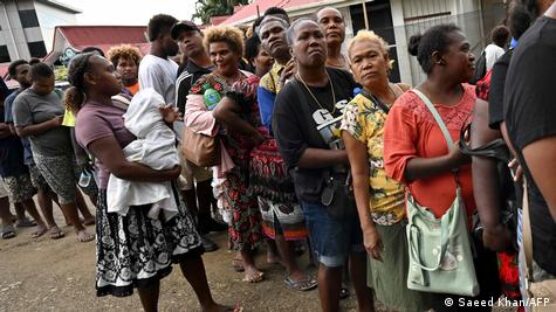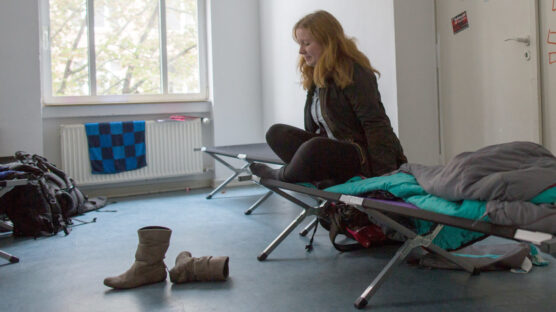Inside the new Afghanistan: France 24’s exclusive look at life under the Taliban
By France24
17 December 2021 |
3:00 pm
What's it really like inside the new Afghanistan? Four months after the fall of Kabul to the Taliban, FRANCE 24 went to the capital and beyond to speak to citizens from all walks of life. What they heard was a mix: relief that the guns have gone quiet but worry over the prospect of a bleak winter, with more than half the population facing acute food shortages. Meanwhile, Afghanistan remains isolated on the world stage and its new rulers have yet to let women return to school and work. The Taliban also still have to prove that they can run a country.
In this article
Related
Related
1 day ago
Authorities in Germany's Bavaria say they want to restrict the use of cannabis at festivals and beer gardens. Germany legalized recreational marijuana earlier this month, a move opposed by the Bavaria-based CSU.
4 hours ago
As the US government and its allies mull new sanctions on Iran after Tehran's missile and drone attack on Israel, we look at whether existing sanctions have been effective at stemming the flow of Iranian oil to global markets.
1 day ago
Solomon Islanders began voting on Wednesday in a crucial election that will decide China's foothold in the Pacific region.
Polling booths opened at 7 a.m. local time on Wednesday (2000 GMT on Tuesday), with almost 420,000 registered voters to elect 50 members of the national parliament.
There are more than 1,000 polling stations scattered across the Solomons archipelago, 2,000 kilometers (1,200 miles) off Australia's coast.
5 hours ago
Indonesia is aiming to reduce its dependence on fossil fuels, with 30 percent of the country's energy slated to come from biodiesel by 2030. But the plan has caused alarm among environmental groups.
5 hours ago
Russian peacekeepers will withdraw from Azerbaijan's Nagorgno-Karabakh region, the Kremlin said on Wednesday.
Kremlin spokesman Dmitry Peskov confirmed the move, responding to a question about reports in the Azerbaijani media about the withdrawal. "Yes, it really is the case," Peskov told reporters.
6 hours ago
The Iranian attack was largely repelled and as such is a "dramatic failure", Barak said. As a result, he believes "there is no need and no will to go into full-scale war" with Iran.
Latest
2 hours ago
Housing is the social issue of the 21st century, German politicians and experts say time and again. And yet there's no improvement in sight, especially in cities, where affordable housing is in short supply.
2 hours ago
According to the International Monetary Fund (IMF), a 10% rise in the dollar on the currency market would push down real gross domestic product (GDP) in emerging economies by 1.9% after one year, with adverse economic effects lasting more than two years
4 hours ago
The Venice Biennale, which runs this year from April 20 to November 24, is one of the world's most prestigious international art shows, alongside the documents in the German city of Kassel.
6 hours ago
In the latest speculative fiction from British director Alex Garland, Kirsten Dunst stars as a war reporter documenting a conflict she once never thought possible: a new civil war in the United States. With the US in the midst of another divisive election year, the scenario may seem cliché, but FRANCE 24 film critic Lisa Nesselson says the film is engrossing, entertaining and unsettling.
8 hours ago
She has featured in Beyoncé's music videos, choreographed a sell-out stage musical and brought underground nightclub moves to the stage of the Opéra de Paris. Now Josepha Madoki is hosting a weekend of waacking in the Musée d'Orsay’s imposing entrance hall; she tells us more about this 1970s queer subculture and how she became France’s unofficial queen of waacking. She also tells us about the phone call from her friend and colleague, Sidi Larbi Cherkaoui, which led to a video shoot in the Louvre with Beyoncé and Jay-Z. Plus, Josepha explains why sports and the performing arts are complementary disciplines as she discusses her part in the Paris 2024 Cultural Olympiad.
8 hours ago
Riot police aimed to remove protests from outside the Soviet-era Parliament building in Tbilisi. Lawmakers have approved for further reading a draft bill of the Russian-styled "foreign agents" bill.
×

Get the latest news delivered straight to your inbox every day of the week. Stay informed with the Guardian’s leading coverage of Nigerian and world news, business, technology and sports.


















0 Comments
We will review and take appropriate action.